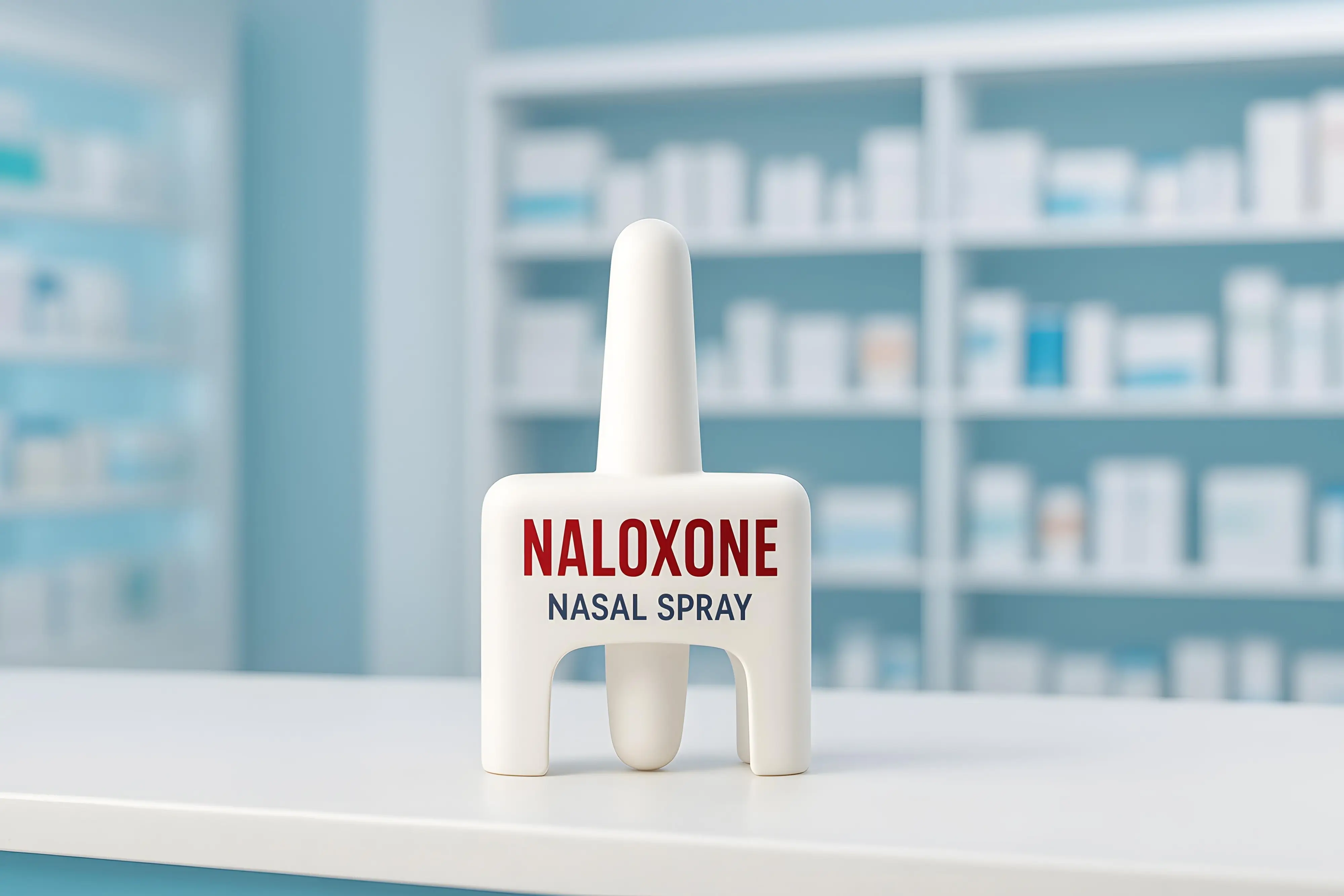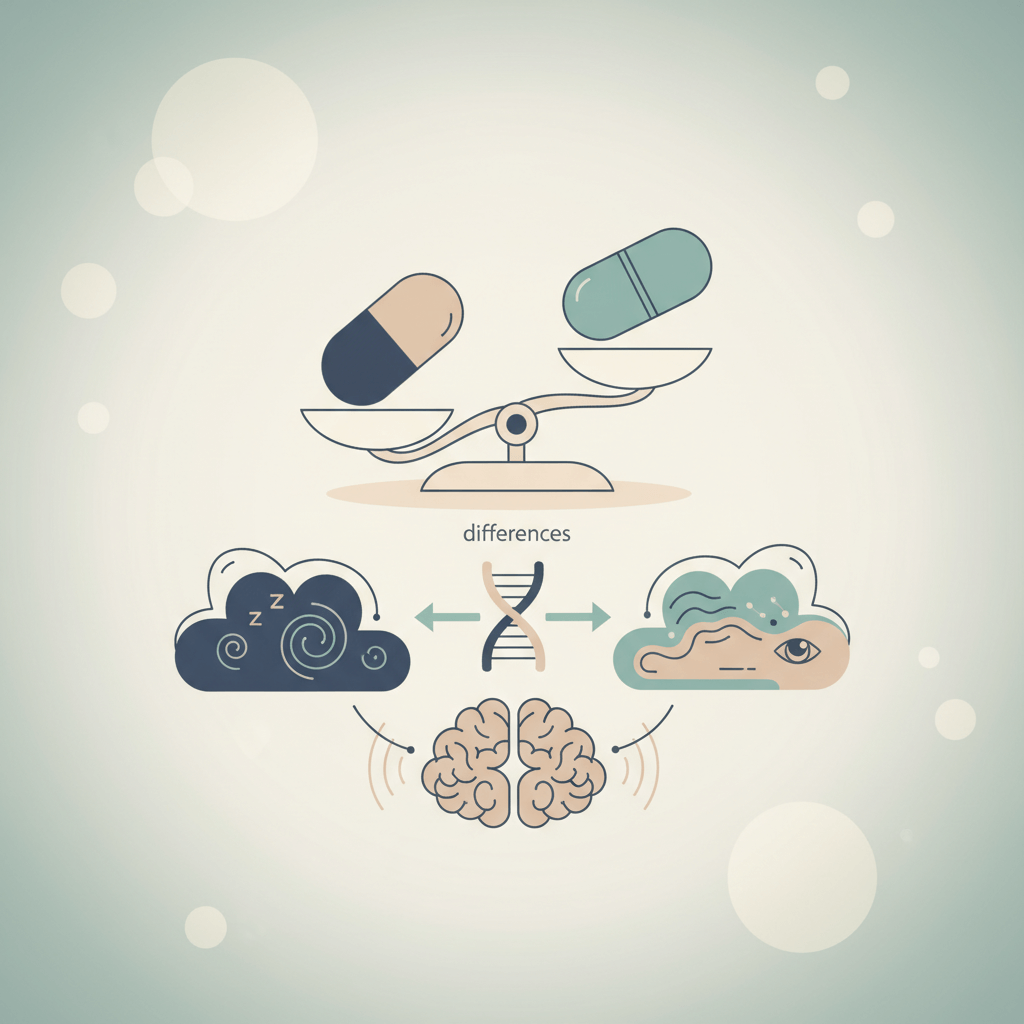Alcohol and the Brain: Dispelling Misconceptions
When it comes to alcohol's impact on the brain, there are numerous misconceptions that have circulated over time. In this section, we aim to provide a clear understanding of alcohol-related brain damage and debunk common myths and misunderstandings.

Understanding Alcohol-Related Brain Damage
Alcohol-related brain damage refers to the impairments and cognitive decline that can occur as a result of excessive alcohol consumption. While it is well-known that alcohol affects the central nervous system, the extent of the damage and the specific conditions associated with it may not be fully understood by the general public.
Contrary to popular belief, not everyone who consumes alcohol will develop brain damage. The risk increases with prolonged and heavy drinking. It's important to note that the effects can vary from person to person, depending on various factors such as genetic predisposition, overall health, and co-occurring factors.
Examining Common Myths and Misunderstandings
Myth 1: Alcohol kills brain cells. While alcohol can have damaging effects on the brain, it does not directly kill brain cells. However, excessive alcohol consumption can lead to a range of neurological disorders and cognitive impairments over time.
Myth 2: Moderate alcohol consumption is beneficial for the brain. While some studies have suggested a potential link between moderate alcohol intake and certain health benefits, including a reduced risk of heart disease, it's important to note that these potential benefits must be weighed against the risks. The negative effects of excessive alcohol consumption on the brain far outweigh any potential benefits.
Myth 3: Brain damage from alcohol is irreversible. While some alcohol-related brain damage may be irreversible, early detection and intervention can significantly improve outcomes. With appropriate treatment and changes in alcohol consumption patterns, individuals can experience improvements in cognitive function and overall brain health.
By dispelling these misconceptions, we can better understand the true nature of alcohol-related brain damage. It's crucial to recognize the potential risks associated with excessive alcohol consumption and take steps to protect our brain health. In the following sections, we will explore the short-term and long-term effects of alcohol on the brain, as well as the specific conditions related to alcohol-related brain damage, such as Wernicke-Korsakoff syndrome and alcohol-induced dementia.
The Effects of Alcohol on the Brain
Alcohol consumption can have significant effects on the brain, both in the short-term and long-term. Understanding these effects is crucial in order to comprehend the potential risks and consequences associated with alcohol use.
Short-Term Effects of Alcohol
Upon consumption, alcohol quickly enters the bloodstream and travels to the brain, where it affects the central nervous system. The short-term effects of alcohol on the brain can include feelings of relaxation, lowered inhibitions, impaired judgment, and slowed reaction times. These effects can vary depending on factors such as the amount consumed, the individual's tolerance, and the rate of alcohol metabolism.
Short-Term Effects of Alcohol
Relaxation
Lowered inhibitions
Impaired judgment
Slowed reaction times
It's important to note that the short-term effects of alcohol on the brain are temporary and typically subside as alcohol is metabolized by the body. However, excessive alcohol consumption or binge drinking can lead to more severe short-term effects, such as blackouts, loss of consciousness, and alcohol poisoning. It is always advisable to drink in moderation and be aware of the potential risks associated with excessive alcohol consumption.
Long-Term Effects of Alcohol
Prolonged and excessive alcohol consumption can have detrimental effects on the brain in the long run. Chronic alcohol use can lead to a range of cognitive impairments and neurodegenerative conditions. These long-term effects can include memory loss, decreased cognitive function, and an increased risk of developing alcohol-related brain disorders.
Long-Term Effects of Alcohol
Memory loss
Decreased cognitive function
Increased risk of alcohol-related brain disorders
Two notable alcohol-related brain disorders are Wernicke-Korsakoff syndrome and alcohol-induced dementia. Wernicke-Korsakoff syndrome is a combination of two conditions: Wernicke's encephalopathy and Korsakoff's syndrome. It is characterized by memory loss, confusion, and difficulties with coordination. Alcohol-induced dementia refers to a decline in cognitive function and memory due to excessive alcohol consumption over a prolonged period.
Factors such as the quantity and frequency of alcohol consumption, genetic predisposition, and co-occurring factors can influence the severity and likelihood of alcohol-related brain damage. Understanding these factors is crucial in recognizing and addressing the potential risks associated with long-term alcohol use.
By understanding the short-term and long-term effects of alcohol on the brain, individuals can make informed decisions regarding their alcohol consumption habits and take steps to protect their brain health.

The Truth about Alcohol-Related Brain Damage
Dispelling misconceptions and shedding light on the truth about alcohol-related brain damage is essential for understanding the potential risks associated with excessive alcohol consumption. While alcohol can have short-term and long-term effects on the brain, it's important to separate fact from fiction. In this section, we will explore three key conditions related to alcohol-related brain damage: Wernicke-Korsakoff Syndrome, Alcohol-Induced Dementia, and Other Alcohol-Related Cognitive Impairments.
Wernicke-Korsakoff Syndrome
Wernicke-Korsakoff Syndrome, also known as alcohol-related encephalopathy, is a condition characterized by a combination of two distinct disorders: Wernicke's encephalopathy and Korsakoff syndrome. Wernicke's encephalopathy results from a thiamine (vitamin B1) deficiency, which can occur due to chronic alcohol abuse. This condition primarily affects the central nervous system, leading to symptoms such as confusion, memory loss, and coordination problems.
If left untreated, Wernicke's encephalopathy can progress to Korsakoff syndrome, a chronic memory disorder. Individuals with Korsakoff syndrome may experience severe memory impairments, confabulation (the production of false memories), and difficulties with learning and retaining new information.
Alcohol-Induced Dementia
Alcohol-induced dementia, also referred to as alcohol-related brain damage or alcohol-related dementia, is a form of dementia caused by long-term heavy alcohol consumption. This condition is characterized by a progressive decline in cognitive function, including memory loss, impaired judgment, and difficulties with problem-solving and language.
Alcohol-induced dementia shares similarities with other types of dementia, such as Alzheimer's disease, but it is specifically linked to chronic alcohol abuse. Prolonged alcohol use can lead to brain atrophy and damage to the brain's white matter, contributing to the cognitive decline observed in this condition.
Other Alcohol-Related Cognitive Impairments
In addition to Wernicke-Korsakoff Syndrome and alcohol-induced dementia, excessive alcohol consumption can contribute to other forms of alcohol-related cognitive impairments. These impairments may include difficulties with attention, executive function, and information processing. It's important to note that these cognitive impairments can vary in severity and may be reversible with abstinence from alcohol.
While these conditions highlight the potential risks of alcohol-related brain damage, it's essential to understand that not everyone who consumes alcohol will develop these conditions. Factors such as the quantity and frequency of alcohol consumption, genetic predisposition, and the presence of co-occurring factors or comorbidities can influence an individual's susceptibility to alcohol-related brain damage.
Protecting the brain from alcohol-related damage involves practicing moderation and responsible drinking, seeking help and treatment for alcohol misuse, and adopting a healthy lifestyle. By understanding the truth about alcohol-related brain damage, individuals can make informed choices about their alcohol consumption and prioritize their brain health.
Factors Influencing Alcohol-Related Brain Damage
Alcohol-related brain damage can be influenced by various factors that affect the severity and progression of cognitive impairments. Understanding these factors is crucial in recognizing the risks associated with excessive alcohol consumption. Here are three key factors that play a role in alcohol-related brain damage:
Quantity and Frequency of Alcohol Consumption
The quantity and frequency of alcohol consumption directly impact the risk of developing alcohol-related brain damage. Prolonged and excessive alcohol intake can lead to severe cognitive impairments over time. Binge drinking, which involves consuming a large amount of alcohol in a short period, can also contribute to acute intoxication and impair brain function.
It's important to note that the threshold for alcohol-related brain damage can vary from person to person. Factors such as age, sex, body weight, and overall health can influence an individual's vulnerability to the damaging effects of alcohol on the brain.
Genetic Predisposition and Vulnerability
Genetic factors can contribute to an individual's susceptibility to alcohol-related brain damage. Certain genetic variations can affect the way the body metabolizes alcohol, making some individuals more vulnerable to the damaging effects of alcohol on the brain. Family history of alcoholism or other substance use disorders may also increase the risk of developing cognitive impairments due to alcohol consumption.
While genetics can influence the risk, it's essential to remember that lifestyle choices and environmental factors also play significant roles in alcohol-related brain damage. Understanding one's genetic predisposition can help individuals make informed decisions about their alcohol consumption and take necessary precautions.
Co-occurring Factors and Comorbidities
Co-occurring factors and comorbidities, such as other substance use disorders or underlying mental health conditions, can exacerbate the risk of alcohol-related brain damage. The combined effects of alcohol and drugs on the brain can lead to more severe cognitive impairments. Additionally, conditions such as liver disease or malnutrition, which commonly accompany excessive alcohol consumption, can further contribute to brain damage.
It's crucial to consider the holistic health of an individual when assessing the risks associated with alcohol-related brain damage. Treating any underlying conditions or seeking appropriate help for co-occurring disorders can significantly reduce the risk of cognitive decline.
Understanding the factors that influence alcohol-related brain damage empowers individuals to make informed decisions about their alcohol consumption. By recognizing the importance of moderation and responsible drinking, individuals can take steps to protect their brain health. Seeking help and treatment for alcohol addiction, and adopting a healthy lifestyle that includes proper nutrition and exercise, can also contribute to minimizing the risk of alcohol-related brain damage.
Protecting the Brain from Alcohol-Related Damage
When it comes to alcohol-related brain damage, taking proactive measures to protect the brain is crucial. By adopting certain strategies and making responsible choices, individuals can minimize the potential harm caused by excessive alcohol consumption. Here are three key ways to protect the brain from alcohol-related damage:
Moderation and Responsible Drinking
One of the most effective ways to protect the brain from alcohol-related damage is by practicing moderation and responsible drinking. This means consuming alcohol in moderate amounts and being aware of its effects on the body and mind. The Centers for Disease Control and Prevention (CDC) defines moderate drinking as up to one drink per day for women and up to two drinks per day for men.
It's important to note that the definition of a "drink" varies depending on the type of alcohol. For instance, a standard drink of beer is typically around 12 ounces, while a standard drink of wine is about 5 ounces. Understanding and adhering to these guidelines can help reduce the risk of developing alcohol-related brain damage.
Seeking Help and Treatment
If an individual is struggling with alcohol abuse or addiction, seeking help and treatment is crucial. Professional intervention can provide the necessary support to overcome alcohol dependency and prevent further damage to the brain and overall health. Treatment options may include therapy, counseling, support groups, or in some cases, medical intervention.
By addressing the underlying issues and receiving appropriate treatment, individuals can regain control over their alcohol consumption and reduce the risk of alcohol-related brain damage. If you or someone you know is in need of assistance, reach out to a healthcare professional or a specialized addiction treatment facility.
Adopting a Healthy Lifestyle
Maintaining a healthy lifestyle is essential for overall well-being, including brain health. Regular exercise, proper nutrition, and adequate sleep play a significant role in protecting the brain from alcohol-related damage. Engaging in physical activity helps improve blood circulation and oxygen flow to the brain, promoting its optimal functioning.
Additionally, a nutritious diet rich in fruits, vegetables, whole grains, and lean proteins provides essential nutrients that support brain health. It's important to note that certain vitamins and minerals, such as thiamine and magnesium, may be depleted by excessive alcohol consumption. Therefore, consulting with a healthcare professional about potential nutritional deficiencies is recommended.
By adopting a healthy lifestyle, individuals can support their brain's resilience and reduce the risk of alcohol-related cognitive decline.
By practicing moderation, seeking help when needed, and adopting a healthy lifestyle, individuals can take proactive steps to protect their brain from alcohol-related damage. Remember, the brain is a remarkable and resilient organ, and with the right care and support, it has the potential to heal and recover.













